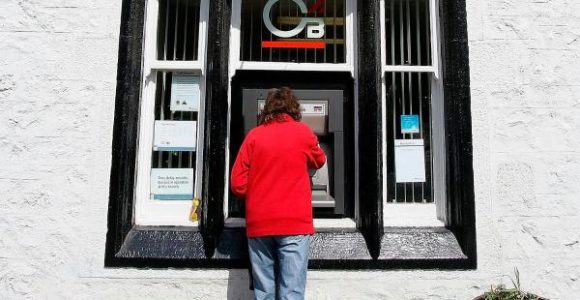Banks keep closing branches, but we’re still not switching

News about high street bank branches is not usually good, but this week there was a rare ray of light. Nationwide, a building society that offers current account banking, is to open a branch in the Somerset town of Glastonbury, where there are no bank branches. It will be based in a building vacated by a high street bank.
It remains business as usual elsewhere, however, as long-standing branches continue to pull down their shutters for good. HSBC is to close a further 62 branches this year, on top of the 55 it has already earmarked for closure, and Yorkshire Building Society last week said that it was closing 48 branches, including the 28 bearing the Norwich & Peterborough brand. Clydesdale and Yorkshire banks will close 79 branches over the next six months.
The disaffection caused by the departure of branches from high streets may be considerable, but it has yet to generate a culture of account switching.
It was confirmed this week that new software will allow more sharing of data between banks to make it easier to move your money, but data from comparethemarket.com shows that 62 per cent of current account holders have never changed banks. Of those who had, 59 per cent never did again. “As consumers, we are fairly apathetic about banking,” says Kevin Mountford, a banking expert at Money-supermarket, the comparison website. “Do we moan and carry on because we think there isn’t anything better? Is there still a perceived risk that changing banks is problematic,” he asks.
If you resolved to make 2017 the year for a better banking deal, this is what you need to know.
How do I switch?
The government-backed Current Account Switch Service was launched in 2013 to increase competition and make it easier for customers to move banks. More than 40 banks and building societies are part of the free service, and 99 per cent of current accounts are covered. Before it launched, the switching process took between 18 and 30 working days; now it takes seven.
If you decide to switch you’ll need to notify the bank or building society you want to move to, fill in an application form, complete a credit check, and provide proof of identity and address.
If your application is accepted, your new bank will contact your old one and arrange the transfer of direct debits, standing orders, your salary and any other outgoing or incoming payments.
Your new bank should specify your switching date. The bank you’re moving to will take care of any costs incurred if payments go astray.
What do I need to consider?
Pick a current account that meets your needs. Look at the overall package on offer; compare credit interest rates, overdraft charges and, crucially, levels of customer service satisfaction.
Avoid marketing gimmicks, says Mr Mountford. Research by Moneyfacts.co.uk shows that Halifax, M&S Bank and the Co-operative Bank have reduced their cash incentives, while Smile, Clydesdale Bank and Yorkshire Bank have removed them.
First Direct has reduced its cash offer for switchers from £125 to £100, but ranks consistently highly for customer service. The UK Customer Satisfaction Index from the Institute of Customer Service shows that the banks with the highest levels of customer satisfaction gain the most customers.



